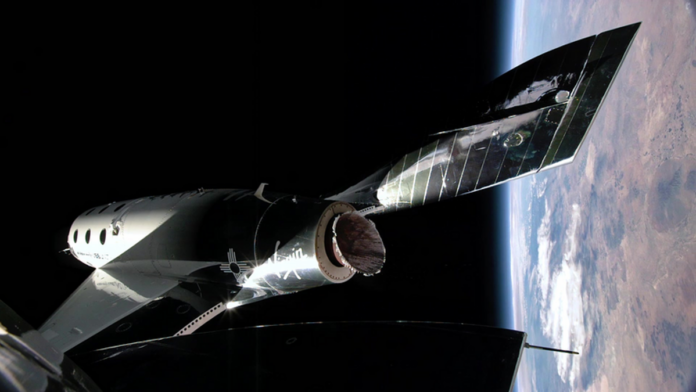Virgin Galactic, the space tourism company that kicked off the SPAC boom, flew its rocket plane to the limit of the atmosphere and back this morning (May 25) for the first time in nearly two years.
The publicly-traded company (SPCE) has been burning money since founder Richard Branson took part in the company’s first passenger flight in 2021. Though that mission succeeded, the VSS Unity rocket plane was off course and likely should have aborted the mission. This flight, carrying six Virgin Galactic employees, is intended to prove the safety of the vehicle ahead of the start of regular commercial service next month.
There may have been some nerves: Virgin declined to share video of the test or make executives available to talk to reporters afterward, but the media outlet NASASpaceflight captured the flight live.
The history of private space tourism
Virgin’s unique approach to space tourism dates back to the 2004 Ansari XPrize, when legendary aircraft designer Burt Rutan won $10 million by building and flying the first private vehicle to carry humans to space: A small rocket plane that soared higher than 100 km (62 miles), the traditional boundary line between the Earth and space, after being dropped from a larger carrier aircraft. Branson bought the design, and the company spent decades struggling to build a larger vehicle, including a tragic test accident that killed one pilot. The VSS Unity flew to space for the first time in late 2018.
Now, the company is operating from Spaceport America in Truth or Consequences, New Mexico. A typical mission will see a group of four passengers board the VSS Unity while it is slung below Virgin Galactic’s modified 747. Then, the aircraft flies to about 40,000 ft before dropping Unity, which ignites its rocket engine and flies to about 80 km (50 miles) above the Earth, a more modern definition of the edge of space. Passengers experience a brief period of weightlessness during the approximately 20-minute flight, before the vehicle glides back to land on the runway.
The future space tourism is hoping for
Virgin Galactic is hoping to begin regular service this summer and start whittling down its passenger manifest, which includes 800 people who have already paid between $250,000 and $450,000 each for tickets. The company is also selling additional tickets at $450,000 per person.
However, Virgin executives on a May 9 earnings call said the company’s future depends on a new type of rocket plane, dubbed the Delta class, that it is building and hopes to be flying by 2026. The new vehicles are intended to be cheaper and fly at a weekly cadence, which could make the space tourism business profitable, as opposed to the one-flight-a-month pace envisioned for VSS Unity.
Virgin will have to compete with Blue Origin’s space tourism rocket, called New Shepard, which is also expected to return to service this summer after the failure of an uncrewed flight in 2022.


